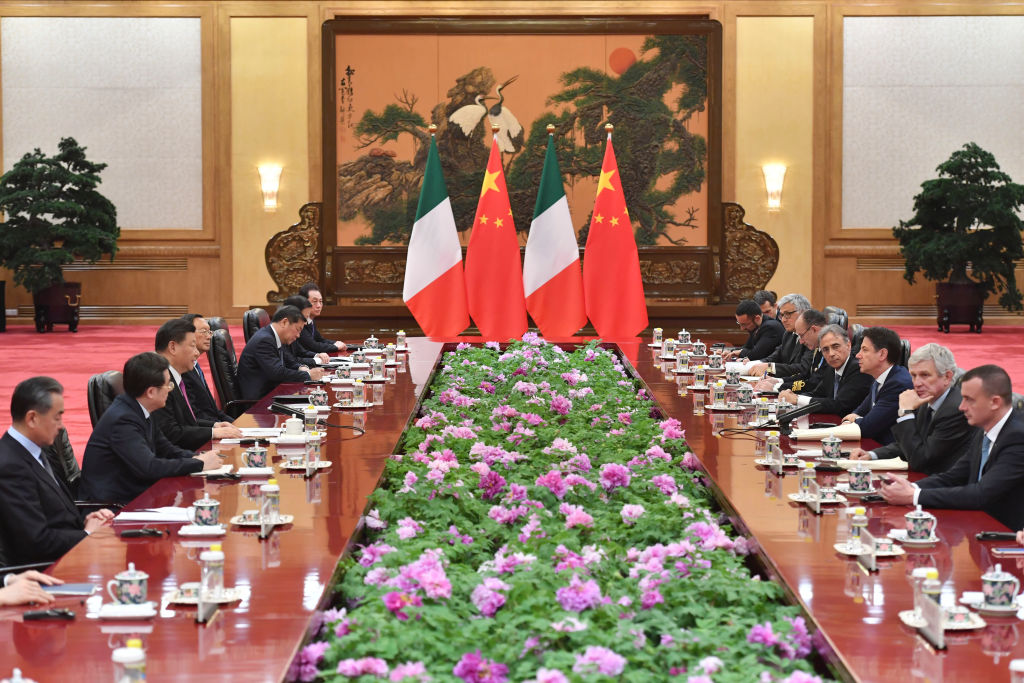Sir Keir Starmer, the British Labour party leader — an organisation organically linked to the country’s major unions — is the latest of many European politicians, in power or with a credible shot at getting there soon, who seem ready to sacrifice jobs and the country’s trade balance to the net zero goal.
As reported in The Times, Sir Keir is poised to announce plans to block all new North Sea oil and gas developments in Scotland next month, as part of his “five key pledges” to woo voters for the 2024 General Election.
Under Labour’s “Green Prosperity” slogan, he promises that his government would invest in “green enterprises”, and predicts that he will create “up to” half a million jobs in the renewables industry, as part of a radical blueprint to make Britain a “clean energy superpower”. (Who will pay the salaries for those costlier jobs, especially as British gas exports will stop, is unclear.)
We have heard this rosy scenario, in the making since 2008 and since 2021 part of actual EU policy, articulated almost everywhere in Europe. Germany’s Conservative-Centrist coalition government set out its ambitious Energiewende (Energy Transition) policies as early as 2011 — focusing on banning all reliance on nuclear (a carbon-neutral energy) and vowing to reach a 55 to 60 per cent share of renewables in gross electricity consumption by 2035.
Not to be outdone, Spain promises it will reduce greenhouse gas emissions by 90 per cent in 2050. Italy says 70 per cent of its electricity will be produced by renewables by 2030.
And on and on and on it goes. Even France, a country proud of its technological achievements in the nuclear field since the 1950s — which enabled it to withstand two Opec oil boycotts in 1974 and 1978, and to domestically produce up to 80 per cent of its electricity in the 1990s — signed up, under Socialist president François Hollande, to a goal bringing that share down to 50 per cent.
Emmanuel Macron, in his first term, began by honouring his predecessor’s promises and closing down the Fessenheim plant in Alsace; he has since recanted and promised to build six new generation nuclear plants in the coming years. But this will take time, especially as uncertainty over the industry’s future meant enough of its highly skilled specialist workers retired or retrained to cause long maintenance interruptions, slowing down production further. France used to export electricity; it now often needs to import some of it.
Needless to say, renewables have failed to make up these shortfalls. In 2019, the German newsmagazine Der Spiegel called the Energiewende a costly failure. That same year, the German Federal Court of Auditors estimated the programme had cost €160 billion over the previous 5 years and called the expense “in extreme disproportion to the results”.
To achieve its anti-nuclear target, Germany re-opened its lignite coal mines – both extremely polluting and producing more greenhouse gases. The sheer cynicism of German politicians was predictable: as early as 2009, the climate scientist James Hansen quoted the Social Democrat leader Sigmar Gabriel, veteran of several Cabinets over two decades, letting the cat out of the bag. “Coal use is essential because Germany will phase out nuclear power. Period. It’s a political decision, non-negotiable.”
Net zero, just like the Energiewende and the ever-growing series of ritual bans in our societies (from supermarket plastic bags to farming pesticides to GMOs) belongs more to ideological magical thinking than to any thought-through policy that would actually better both our lives and the state of planet Earth.
This started early. An unintended consequence of the well-meaning 1972 American DDT ban, finally enshrined in international law in 2001, was the widespread return of malaria in many of the world’s poorest nations. 93 per cent of the plastic trash infesting our oceans originates from eight rivers in Asia (the Yangtze, Yellow, Hai, Pearl, Amur, Mekong, Indus and Ganges Delta) and two in Africa (the Niger and the Nile). Yet we uncomplainingly pay for paper carriers, packaging, utensils, reusable wood or metal accessories that need to be washed, their materials shipped across the globe, until another shibboleth dreamt up by some censorious Green tribe forces yet another reorganization of an industrial sector, pushing up the cost of living and driving the smaller companies that had just painfully adapted to the previous injunctions out of business.
Western countries are currently being guilt-shamed over this summer’s coming droughts. As always, the recommended “remedy” are restrictive measures hitting farmers, individuals, and businesses.
French Greens, to chants against the evils of capitalism, have taken to rioting and destroying water reservoirs supposed to provide farmers with water, which they accuse (without any basis in fact) of draining the water table and appropriating scarce resources. Paris Mayor Anne Hidalgo’s Red-Green coalition has stopped watering Paris parks for several months in summer, effectively killing off lawns and uprooting flowerbeds.
Ideology, as well as the peculiar self-obsession of “activists” who demand that their individual, often contradictory perceptions become law, drives too many of those disparate policies.
It was an eye-opener to attend last Sunday an ECR conference gathered in Jerusalem on “Conservative, Audacious and Pragmatic Solutions to Sustainability and Agricultural Challenges”. Through the windows of the conference hall, we could see green lawns precision-watered in a country that recycles 90 per cent of its water (Israel is ranked first in the world; the second, at 20 per cent, is Spain).
Instead of bans and shortages, we were shown examples of AI-controlled drip irrigation and fertilization, yield improvement, agriculture on sand, sun-powered seawater desalinization. It suddenly wiped out decades of pessimistic projections of degrowth, discontent and impoverishment. It also seemed far more respectful of the planet and her inhabitants than any “Green” policy high-handedly foisted on us by dour little commissars.






Libya’s civil war is the progenitor of Europe’s populist wave – the EU elite must help end it or face the inevitable consequences of yet greater mass migration